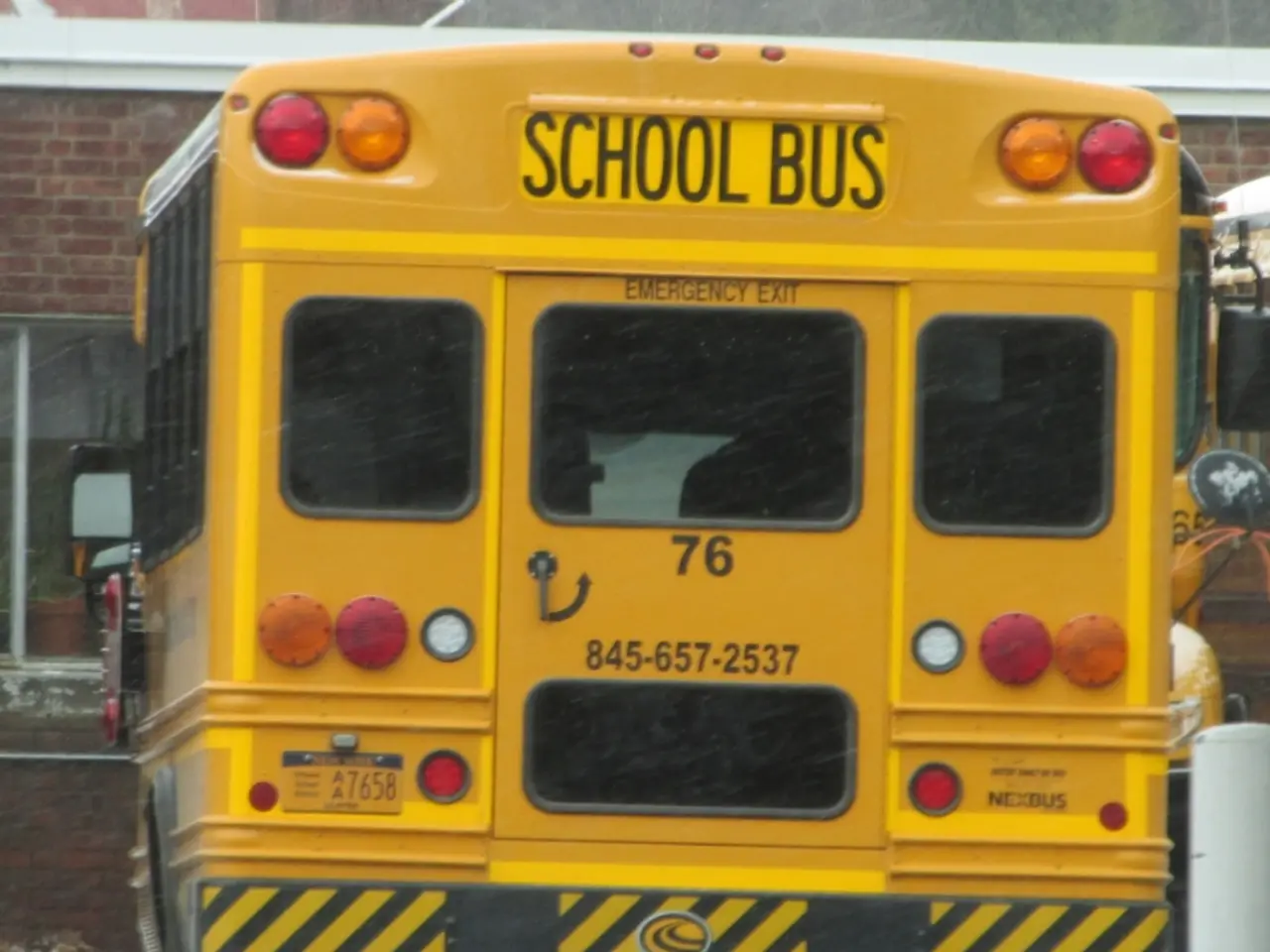Institutions confess to imposing penalties on students disregarding fresh regulations concerning mobile phone usage.
In a significant move towards promoting concentration and social skills among students, Portugal's Government has endorsed a strong recommendation to ban mobile phone use in schools for students from grades 1 through 6. This decision, promulgated by President Marcelo Rebelo de Sousa on July 3rd and set to take effect from the next academic year 2025/2026, aims to regulate the use of electronic equipment or devices with internet access in the school space.
The decree, approved by the Council of Ministers, comes as a response to the conclusions of a survey conducted by Lusa and promoted by the National Education Federation (FNE) and the Association for Training and Research in Education and Work (AFIET). Out of the 4,638 teachers surveyed, the overwhelming majority disagree that students up to the 9th grade can use mobile phones in school spaces.
While the government has taken a firm stance on mobile phone use for younger students, for students beyond 6th grade, schools have discretion on how to regulate mobile phones. This flexible approach is emphasized by the Council of Schools, which favours the implementation of measures restricting the use of mobile communication devices with internet access in the school space.
The survey findings indicate that many teachers go further in their opposition to mobile phone use in school spaces. More than half of teachers disagree that mobile phones should enter classrooms, even for pedagogical purposes. However, research highlights the importance of active mediation (such as guided dialogue and co-use) over purely restrictive approaches, fostering better digital skills and self-regulation rather than just banning devices.
The implementation of these measures within the school space is under the autonomy of the Agrupamentos de Escolas and Non-Agrupated Schools. This approach allows for schools to craft policies that consider both educational benefits and the need to minimize distractions, rather than enforcing a strict ban.
This contrasts with some other countries that impose strict bans on mobile phone use during school hours for all grades or leave the decision solely to school principals, as seen in other European contexts. The new rules on the use of smartphones in schools up to the 6th grade may result in disciplinary measures for students.
The majority of teachers are against the use of mobile phones during recess in all educational cycles. Nearly seven out of ten teachers consider that students of all ages should not be allowed to use mobile phones during recess. The restriction on mobile phone use during recess, for all ages, is a position not previously recommended by the Government.
In conclusion, the approach in Portugal for students beyond 6th grade is generally flexible, with schools and teachers encouraged to craft policies that consider both educational benefits and the need to minimize distractions, rather than enforcing a strict ban. This balanced approach aims to foster digital literacy and self-regulation while promoting a focused and productive learning environment for all students.
- The Government's decision to restrict mobile phone use in schools for students from grades 1 through 6 is part of a broader education-and-self-development policy-and-legislation initiative, aiming to improve concentration and social skills.
- In contrast, the approach for students beyond 6th grade is more flexible, with schools and teachers encouraged to implement policies that balance educational benefits and the need to minimize distractions, as found in the general-news context surrounding Portugal's mobile phone use policies.




